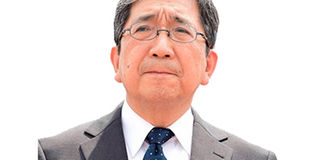Let’s build on our strong partnership and support Africa’s efforts to advance

What you need to know:
Committed to the TICAD agenda. The private sector has the potential to create the necessary jobs and promote innovation for Africa’s transformation. Japan continues to be committed to the TICAD agenda, declaration and action plan.
There is a Head of State level international conference invited by Japan focused on development in Africa. You may have heard about Tokyo International Conference on African Development (TICAD). Its Seventh conference, TICAD7, will be held in Yokohama, Japan, at the end of this month. This is the summit meeting where Japanese Prime Minister Shinzo ABE invites all leaders from African countries. Founded by the Japan Government in 1993, TICAD has promoted policy dialogue between African leaders and development partners on the pressing issues facing Africa, such as economic development, poverty and conflict. TICAD is a pioneer in development forum focused on African development; a quarter century has passed since the first TICAD.
But why is Japan so keen on Africa’s development and how much economic benefit does Japan bring to the continent 10,000 kilometres away? There is a story to respond. When the first TICAD was held in 1993, proposed by Japan and co-organised by the United Nations, the World Bank, and UNDP, almost no one thought that this forum would last for such a long time. At that time, the Western countries could not fully address Africa’s development due to so-called “aid fatigue” and the need for emergency assistance to the Eastern Europe and the former Soviet Union after the collapse of the Soviet Union.
Japan decided to take part in this effort for African development with its conviction that Asian development experience and the success of economic and political reform would extend to Africa. Although TICAD was originally conceived as a one-off event, African countries welcomed this Japanese initiative and it was during the first TICAD that African countries resolved to continue this forum. Then we repeated the round every five years (every three years from 2016) and TICAD reached seventh conference this year (2019!)
TICAD has a consistent philosophy. Since its inception, the principles of Africa’s “ownership” and international “partnership” have been consistently highlighted to facilitate the implementation of measures to promote African development. In the 1990s, this was a milestone in the concept of African economic cooperation. In the colonial period, predominant attitude were such as: A “charity” gives you alms because you are poor; “Christian Mission” teaches you because you are ignorant. TICAD, however, emphasised that what you are given and taught is useless unless you make your own effort. At first glance, this is a cold and unfriendly stance, but African countries welcomed this because you believed you could do it yourselves. The attitude of believing in African capability appealed to the pride of Africans.
There was another good concept that TICAD showed. The idea was that private economic activity would be an important driving force for sustainable development in Africa. Today, aiming for poverty reduction through economic growth is widely regarded as rational. However, this was not the case in the past aid cooperation world. They believed the development assistance from public institutions such as nations or international organisations was essential because they thought the private sector’s purpose was to pursue economic benefits and ultimately to increase exploitation and fraud. On the other hand, TICAD turned to private trade and investment, since Japan saw an example where the living standards of East Asian people had improved and economic development made politics and society mature.
Now let’s talk about TICAD 7 to be held from August 28 to 30 in Yokohama, Japan. The three pillars of TICAD 7 are: 1) accelerating economic transformation and improving business environment through innovation and private sector engagement, 2) deepening sustainable and resilient society, and 3) strengthening peace and stability. Under the first economic pillar, there are key areas such as economic diversification and industrialisation, improving business environment, debt transparency and sustainability, quality infrastructure, agriculture, and blue economy (sustainable use of ocean resources). The second pillar from a social point of view determines the main focus area such as health, education, environment, and disaster risk management. Finally, the third is peace and stability, focusing on the rule of law, good governance, and refugees /internally displaced people.
As mentioned earlier, one of the main focus areas of TICAD 7 is economic transformation and improvement of the business environment through private investment and innovation. In this regard, TICAD is a platform for stakeholders, including governments, the private sector and civil society, to work together to bring out the possibilities of partnership and innovation for African development. Africa is considered to be the most important economic opportunity of the 21st century, and Japanese companies are focusing on Africa with ever greater interest. At the first TICAD conference held in Africa in 2016, 77 Japanese private companies visited Nairobi. TICAD 7 looks forward to increasing opportunities for African countries and private companies to interact directly with much more Japanese companies. I am satisfied that TICAD promotes further involvement of the private sector and further strengthening of private investment. The private sector has the potential to create the necessary jobs and promote innovation for Africa’s transformation. Japan continues to be committed to the TICAD agenda, declaration and action plan.
I trust in Africa-led solutions for African issues. And for that, I promise Japan’s stable support to Uganda. There are challenges in Africa, but I see there is great potential across the continent. Africa’s enormous young people’s energy is the driving force of a new phase of sustainable development. Let’s build on our strong partnership and support Africa’s efforts to advance towards a resilient and sustainable future.
Mr Kameda is the Ambassador of Japan to the Republic of Uganda


